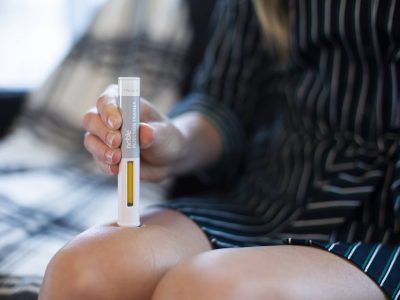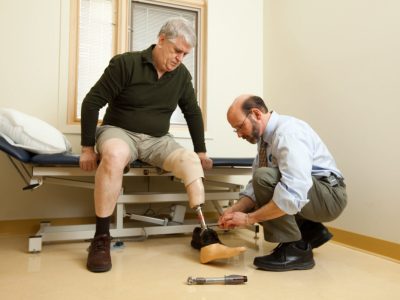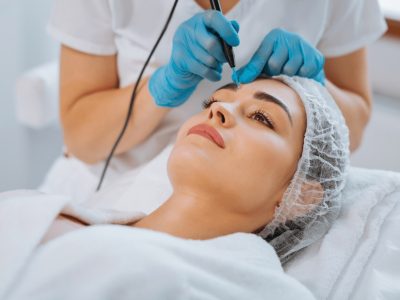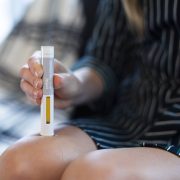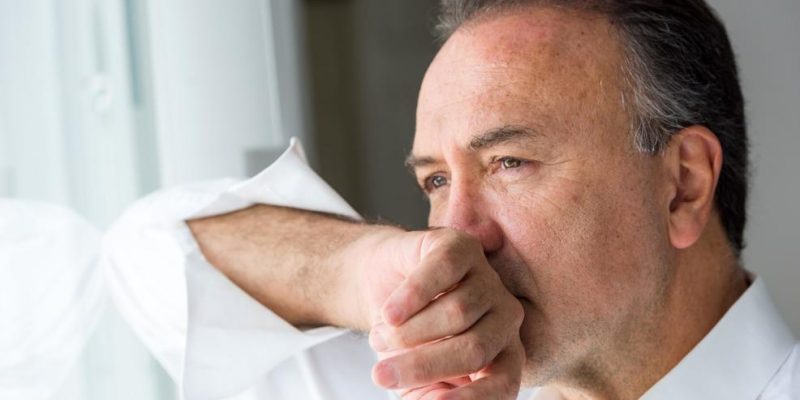
Low testosterone (male hypogonadism) is an endocrine condition in which the male reproductive system does not secrete adequate testosterone (male sex hormones). In males, testosterone helps develop and maintain: muscle mass, body fat, muscle strength, sperm count, and libido. Testosterone is essential for stimulating reproductive organs such as the penis and seminal vesicles. It also plays a role in the formation of secondary sexual characteristics in men. As men age, they may experience symptoms related to this disease such as loss of body hair, and enlargement of the prostate.
Other symptoms include erectile dysfunction, depression, osteoporosis, decreased sexual ability, decreased muscle mass, decreased bone mass, decreased libido, and loss of muscle strength. Low testosterone helps cause many problems related with sexuality. These include reduced sexual desire, decreased sex drive, reduced sexual satisfaction, decreased libido, decreased sperm count, decreased sperm production and decreased bone mass.
Low testosterone levels may result from a number of factors. Testosterone production may be affected by a number of things such as illness, injury, medication, chemotherapy, and aging. Age is another factor. As men age, their testicles begin to produce less testosterone naturally. Because testosterone is an anabolic hormone, low levels of this hormone can also be a side effect of certain drugs such as diuretics, anabolic steroids, and anabolic agents like dieting pills. A low level of testosterone may also occur from diseases such as diabetes and hypothyroidism.
A doctor may prescribe testosterone replacement therapy if there are low blood levels because of these conditions. However, this is not always the best solution because the side effects of these drugs make it more difficult for the body to absorb androgens properly. In addition, these medicines have been associated with some serious side effects. Sometimes, doctors will treat patients by lowering the levels below normal through various means, but this can increase symptoms, which makes treatment more difficult. For these reasons, it is important for men to work with a qualified physician who can evaluate their condition and provide advice about what treatments are appropriate.
If the doctor decides that testosterone levels need to be increased, he or she will prescribe synthetic forms of the hormone. These can be absorbed into the body more easily and do not cause as many side effects as natural forms. Some doctors prefer testosterone injections to be administered. If the doctor decides that this form of therapy is necessary, he or she may suggest using injectable versions of androgens such as Enlast or Cymilium-B. Most of these products contain blend of testosterone and other hormones to stimulate hormone production.
In rare cases, a doctor may recommend surgery to increase testosterone production. In most cases, however, doctors will encourage patients to take their stores of testosterone naturally. It has been established that increased levels of this mineral can increase bone density, help with muscle development and aid in reducing body fat. In some studies, men have even documented increases in sexual performance and libido after taking a higher dose of testosterone. Some research even suggests that testosterone supplements may lower the likelihood of developing prostate cancer, though more research is needed to support this claim.
Symptoms of low testosterone often go unnoticed because they are the same symptoms as other conditions that affect the body at the same time. For example, the flu, common cold or the flu symptoms can all mimic those of low testosterone. When men think they are experiencing low testosterone they usually immediately go to a specialist such as Precise Men’s Medical Center to get treated. Unfortunately, most men do not realize there are other possible causes for their low level of testosterone. So what are these other causes for low testosterone?
Testosterone plays an important role in the production and storage of sperm. Sperm is the sperm cells that are responsible for fertilizing an egg. If your testicles are producing low testosterone levels then it may mean you aren’t producing enough sperm to fertilize an egg. Symptoms of low testosterone may include: low sex drive, and low bone mass. The hormone also plays many other important roles, including:
If your doctor measures your testosterone levels then he will be able to tell if you have low testosterone by testing your sperm count. He will likely want to perform a biopsy of the testicles to determine if it is the cause of your symptoms. If your doctor does perform a biopsy and determines that you do have low testosterone then he will likely prescribe an oral or vaginal cream that contains the hormone per deciliter or a low dose of an injectable form of testosterone. Some doctors prefer to administer a topical cream that contains 50 nanograms of testosterone per millimeter because this amount is one hundred times less potent than the hormone testosterone.
As we age, our testosterone levels naturally decrease. Testosterone plays a key role in the formation and maintenance of our sex organs such as the penis and seminal vesicles. As we age, the production of testosterone declines so does the quantity of red blood cells carrying red blood cells. As a result, symptoms of low testosterone will manifest in a variety of body functions such as: erectile dysfunction, loss of muscle strength and thickness, decreased sensitivity to cold, decreased energy levels and frequent infections. Older men are more likely to suffer from conditions that affect the bone and joint systems.
The testicles also play a role in the production of sperm. The production of sperm decreases as we age. Sperm count and quality can decrease as well with decreased testosterone levels. Because the testicles are directly affected by the production and function of the pituitary gland, lowering pituitary gland function can directly affect testosterone production and thus lead to symptoms of low testosterone levels.
While there are numerous medical conditions that mimic symptoms of low testosterone levels, one of the most common is heart disease. Many people suffer from low testosterone levels and do not associate this condition with aging, but the truth is that it can occur at any point in life. Symptoms of low testosterone include hot flashes, depression, anxiety and mood swings, and a weak immune system. If you experience any of these symptoms, talk to your doctor about taking a testosterone supplement.



